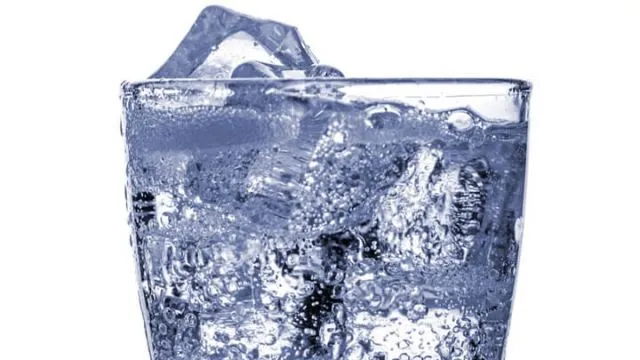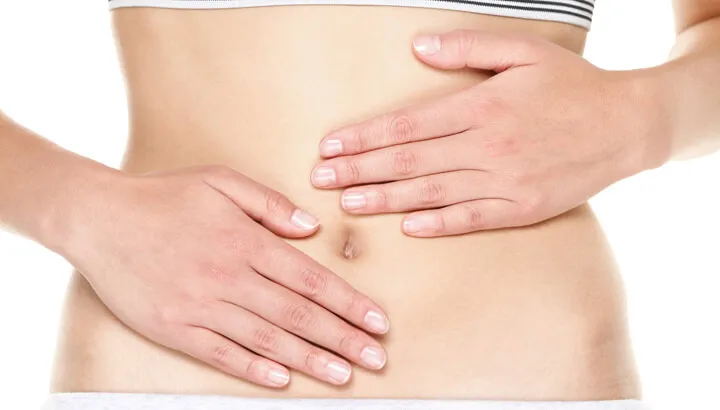
- Share on Facebook118
- Share on Pinterest
- Share on Twitter
As someone who has cast aside the diabetes-inducing effects of soda and other sugar-enriched beverages, sparkling water has become one of my favorite “special occasion” drinks. Whether I’m just relaxing outside on a deck chair or hanging with friends in my local sun-dappled beer garden, sparkling water makes an excellent replacement for things like tonic, Coca-Cola, Sprite or even fruit juices… especially if it has a few key ingredients in it, like muddled blackberries, crushed mint, cucumber slices, fresh lime juice and maybe a dash of 100 percent agave tequila!
Sparkling water is simply water which has been infused with carbon dioxide gas under pressure. This process produces the bubbly water we know and love and is presented under a range of varieties such as soda water, carbonated water, mineral water, club soda and — in certain circles — simply “fizzy water.”
While these various products may contain slight variations in ingredients, such as added mineral salts or removal of naturally-occurring compounds from the water via the process of reverse osmosis, they’re all just fizzy water! Not that tonic water is a little different from this group, as it contains a surprising amount of sugar/high-fructose corn syrup and quinine, the ingredient which gives it that characteristic bitter taste. For the sake of this article, tonic doesn’t count as “sparkling water.”
So what’s with all these rumors about sparkling water resulting in a number of unhealthy side effects then? Some websites claim that drinking sparkling water can leach calcium from our bones and cause osteoporosis, while others suggest that drinking this beverage can erode your teeth enamel, damage your stomach lining or even lead the way to cancer. Is there any truth to these claims? Let’s find out!
Does sparkling water affect your teeth?

Perhaps one of the most prevalent claims against sparkling water is that it can erode the layer of enamel which surrounds your teeth, protecting them from decay. It’s true that during the process of carbonation, carbon dioxide and water react to produce carbonic acid. You may hear the word “acid” and think, “Aha! Gotcha!” but this isn’t the sort of acid which eats through everything it touches and burns through skin.
Sulfuric acid has a pH of between 0.3 and 2.1, hydrochloric acid a pH of between 0.1 and 2, and citric acid a pH of 2.2. Carbonic acid has an almost laughable pH of 3.8, and considering the pH scale is measured in orders of magnitude, citric acid (the kind that comes from things like oranges and lemons) is many times more acidic and corrosive than carbonic acid is.
So, while carbonated water may have the potential to erode your teeth enamel more than just regular water, it’s not really anything to be concerned about. This study, for example, found that sparkling mineral water was only slightly more damaging than still water, and it was furthermore concluded that sparkling water was approximately 100 times less damaging than soft drinks.
It turns out it’s the sugar in beverages that you should be worried about if you value your teeth, not the bubbles. So always read the label on the back of your favorite sparkling water brand to make sure there’s no added sugar. And stay away from tonic!
Does sparkling water affect bone health?
Some time in the recent past, things must have gotten lost in translation, causing certain “health experts” to draw a connection between carbonated drinks and low bone mineral density. Studies have shown that consumption of carbonated drinks with sugar or artificial sweeteners in them, the primary example being colas, significantly lowered bone mineral density. This does not mean that all carbonated drinks cause bone mineral density (BMD) loss, only those which contain phosphoric acid.
As sparkling water drinks only contain carbonic acid and no sugars or artificial sweeteners, they are off the hook. In the words of one study, “no significant relations between non-cola carbonated beverage consumption and BMD were observed.” Remember: just because they’ve both got bubbles doesn’t mean they’re the same thing!
In fact, it’s possible that drinking carbonated water may even increase your bone density! While admittedly this study used chickens as the test subjects, it showed that replacing still tap water with carbonated water as the primary means of hydration resulted in significantly stronger bones with enhanced integrity. Take that, sparkling water haters!
Does sparkling water affect digestion?

Contrary to claims that sparkling water may negatively affect digestion and damage the throat, it may actually provide a wide range of benefits to your stomach and improve ease of digestion. For starters, studies indicate that sparkling water can improve people’s ability to swallow, particularly with regards to children and the elderly. It was thought that carbonated water promoted ease of swallowing due to its ability to more efficiently stimulate the nerves responsible for the body’s swallowing response.
Next, research suggests that sparkling water increases the residence time of food within the first section of the stomach, which can lead to greater feelings of fullness after meals.
Finally, drinking carbonated water may even help with constipation. In one study of 40 people over two weeks, average bowel movement frequency increased by nearly 100 percent in the group that drank carbonated water, versus those who just drank tap water. Sure, sparkling water may make you burp, but this is simply your body releasing the carbon dioxide contained within the water, and this process may even help to relieve gas and feelings of bloating in the stomach after eating.
The bottom line
After reading the above, you’ll probably agree that it’s hard to believe any of the negative claims against “fizzy water.” Much of the bad press seems to stem from people lumping carbonated water in with the wider community of carbonated beverages. This community includes a wide range of sugar-rich, synthetic compound-laced drinks, such as colas, lemonades and “diet” sodas, which actually do cause adverse side effects and can certainly fulfill all of the health-damaging claims which are sometimes attributed to sparkling water.
When it comes down to it, sparkling water is actually a smart choice when it comes to keeping hydrated. In most cases, it’s essentially just a more exciting version of standard still water, but in many instances, it can actually provide a wide range of health benefits which you would otherwise miss out on — things like improved digestion, hydrating minerals and electrolytes. It’s possible that it may even increase bone integrity.
Just make sure you stick to sparkling water which doesn’t have any added ingredients (especially sugar or artificial sweeteners), and you shouldn’t have to worry about your health.
— Liivi Hess
Got a hankering for something a little more exciting than water, but worried about the hidden health dangers of store-bought drinks? You might want to try these healthy DIY soda alternatives!
- Share on Facebook118
- Share on Pinterest
- Share on Twitter

